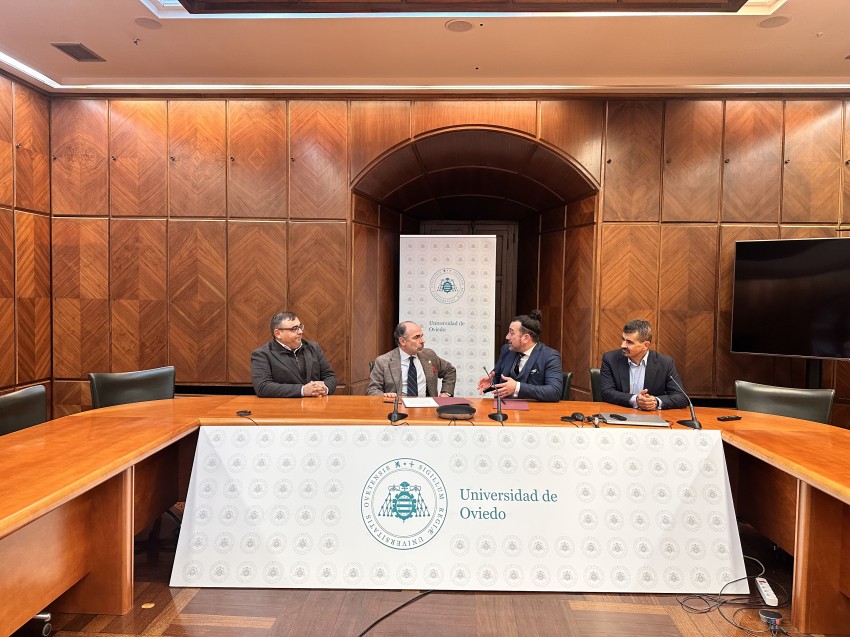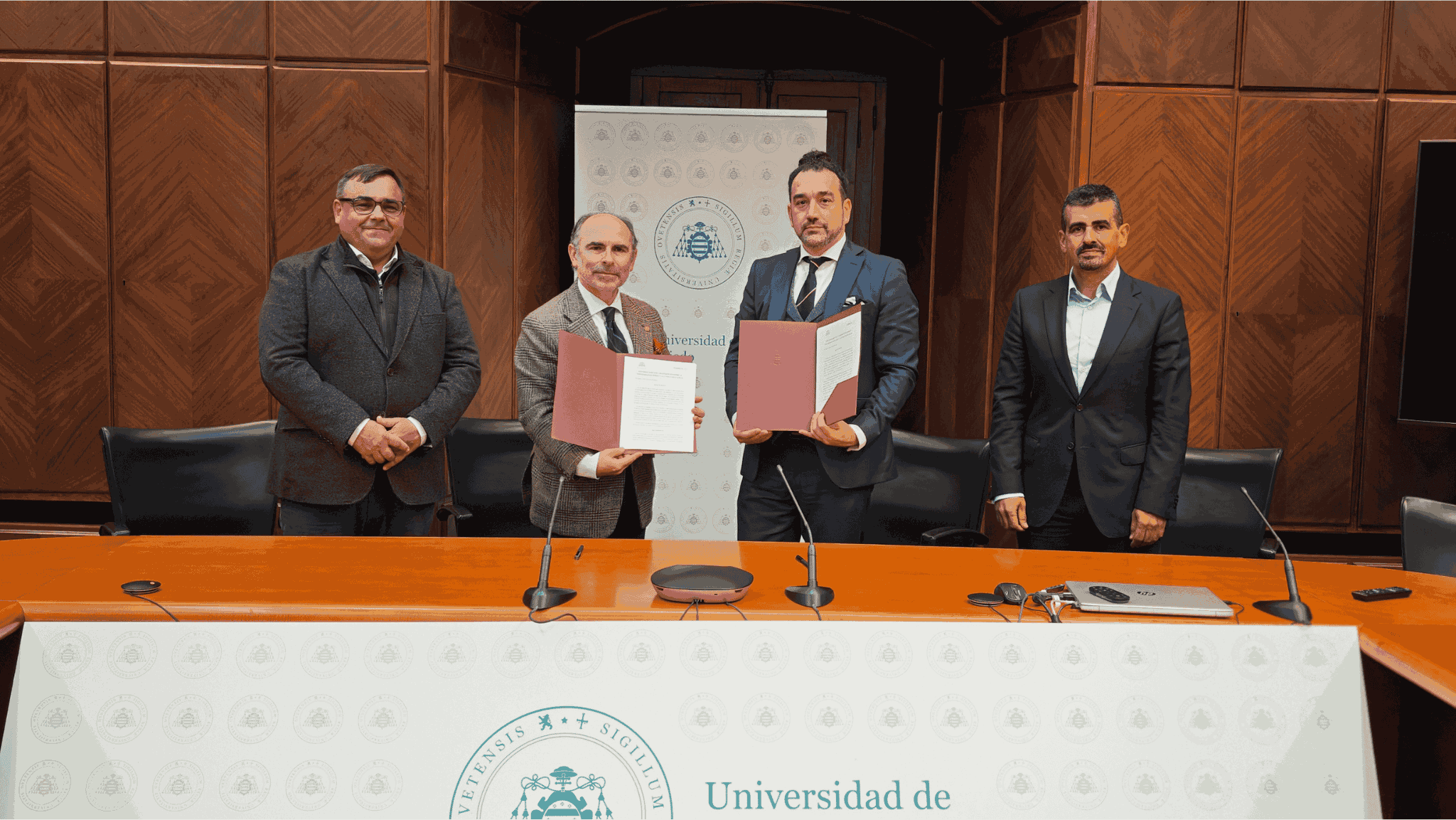The University of Oviedo and the ICAMCYL Foundation join forces to promote research on critical raw materials.
Our day by day / 29-10-2025
Oviedo/Uviéu, October 28, 2025. The University of Oviedo and the ICAMCyL Foundation (International Center for Advanced Materials and Raw Materials of Castilla y León) have today signed a framework collaboration agreement aimed at strengthening research, innovation, and technological development in the field of critical and strategic raw materials. The agreement consolidates an institutional relationship already active since 2018 between both entities, through joint participation in leading European projects under the Horizon Europe program and other community initiatives aimed at developing technologies and advances in sustainability, raw material processing, and research in advanced materials.

The signing ceremony was presided over by the rector of the University of Oviedo, Ignacio Villaverde, and the general director of ICAMCyL, Santiago Cuesta-López, who were accompanied by the deputy director of the center, José Ramón Natal, and the director of the Research Institute on Raw Materials (ASRAM) of the Asturian academic institution, Juan María Menéndez Aguado, who works closely with the Foundation in promoting the creation of a hub for critical and strategic raw materials in the northwest of the Peninsula.
With this agreement, both entities commit to promoting joint research and innovation projects in sustainable mining, circular economy, and advanced materials transformation, with the goal of strengthening the competitiveness of northwestern Spain and contributing to Europe’s strategic autonomy.
During the signing of the agreement, Rector Ignacio Villaverde highlighted the relevance of this type of collaboration in the strategy to boost knowledge transfer between the university and the productive sector: “Only through a close relationship with industry can we transform research into real innovation, capable of generating economic and social development. This agreement will enable progress in key areas such as advanced materials, sustainability, the circular economy, and technologies linked to the energy transition.”
“The current geopolitical situation compels us to act with foresight. These collaborations are a pillar for the reindustrialization and independence of Spain in strategic sectors,” stated Santiago Cuesta-López, who emphasized the importance of integrating academia, industry, and administration “to develop an innovative and sustainable ecosystem that positions the northwest as a benchmark in critical raw materials.”